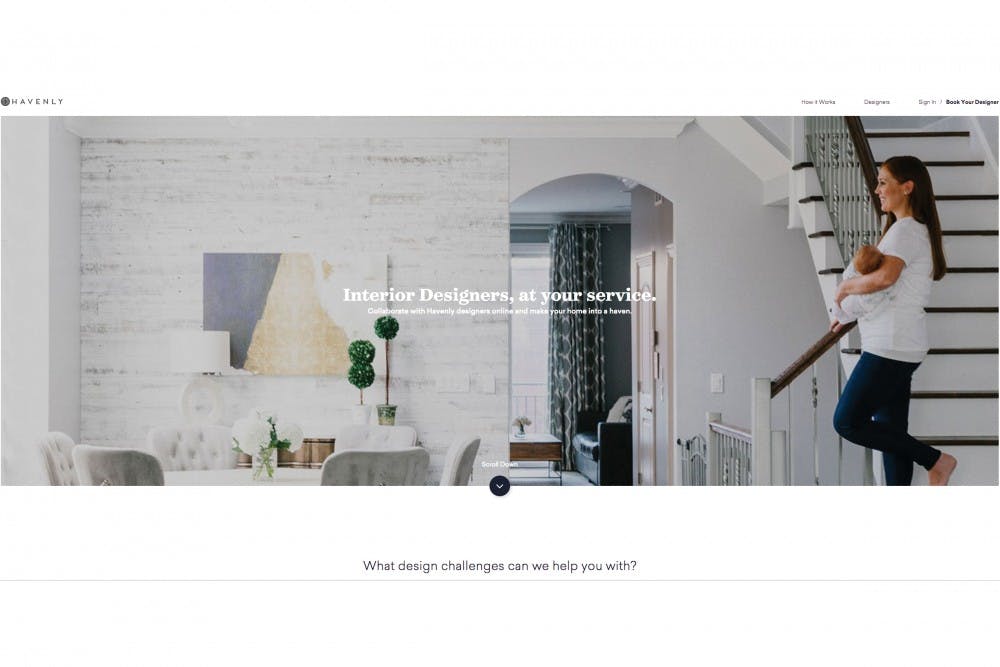
Wharton MBA graduate Emily Motayed's interior design website Havenly allows customers to access affordable and accessible designers.
2016 Wharton MBA graduate Emily Motayed made this year’s Forbes 30 Under 30 list for her $13.3 million online interior design company, Havenly.
The company connects homeowners to interior designers via the internet for flat rates of $79 or $199 per room. Motayed founded the site with her sister in 2013.
Motayed built the company out of a personal need, she said, after she moved to New York and could not afford an interior designer for her new apartment. After researching, she realized that there existed no company to provide design advice to clients on tight budgets.
Motayed enrolled in Wharton’s MBA program two years after she launched Havenly. She said she profited from incorporating what she learned in her entrepreneurship classes to the company she was building at the same time.
Samantha Beuscher, a designer for Havenly, spoke to Motayed’s entrepreneurship qualities.
“[Havenly] can change the game for something that hasn’t changed in years,” she said.
Beuscher described how the interior design industry has been elusive and expensive in the past because it is time-consuming for both the designer and the client. Designers spend time in the client’s home, go to furniture stores with them and create detailed boards of swatches and patterns. Clients must also take time off of work to shop with designers.
With e-design, Beuscher said, designers and clients can work within convenient hours without impeding on job obligations and daily life. Havenly makes it so location is no longer a barrier to the accessibility of designers; as an example, Beuscher is currently working with a client in the Czech Republic through the website.
Motayed said that Havenly’s goal is to “democratize interior design.” This idea, she believes, has solidified her brand’s definition — to her, the most important and difficult part of starting a company.
“Building a brand is more of an art rather than a science,” she said. “You’re trying to figure out what your customers want even when they’re not telling you.”
To foster this brand image, the marketing team curated photos for the website to find a style that felt unique and also fit with the company’s goal in a logical way.
“We want to make sure that what we’re building is interior design that everyone can use,” she said. “Everyone deserves a beautiful home.”
When logging onto Havenly, clients fill out a questionnaire and are matched with a selection of Havenly’s designers. Once they select one and start working, the designers create either a room rendering or a general concept depending on the user’s needs. They also form a shopping list of items that customers can, if they wish, order through Havenly.
To Beuscher, Havenly brings clients together with designers who adore their career field.
She described why she believes in Havenly, saying, “It’s the ability to use the internet for mass consumer availability while still creating design that comes from a place of love.”
The Daily Pennsylvanian is an independent, student-run newspaper. Please consider making a donation to support the coverage that shapes the University. Your generosity ensures a future of strong journalism at Penn.
Donate




